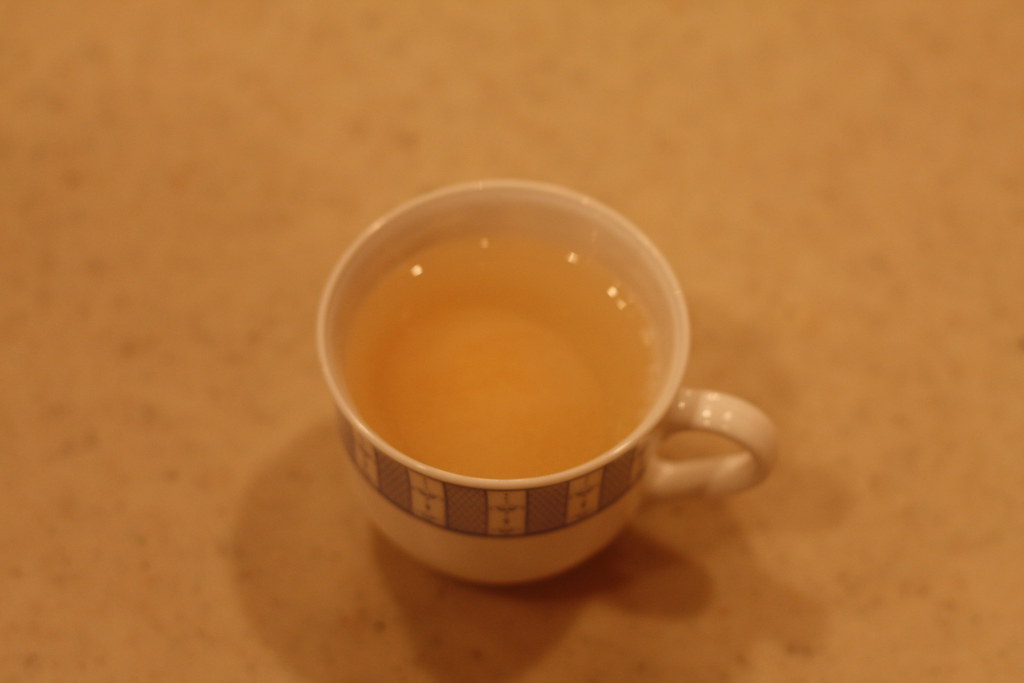As any gardener knows, weeds are a continual battle. While synthetic chemical herbicides provide an easy solution, they have potential risks to human and environmental health. Organic herbicides offer a safer, eco-friendly alternative for managing weeds without harsh chemicals. In this guide, we’ll explore what organic herbicides are, how to make and use them effectively and integrate them into an overall weed management plan.
What are Organic Herbicides?
Organic herbicides are plant-derived or naturally occurring substances that selectively kill or suppress weed growth. Unlike synthetic herbicides, organic herbicides break down quickly without leaving persistent toxic residues in the soil. They are generally considered lower risk for humans, pets, wildlife, and beneficial organisms like bees and soil microbes.
The key difference is that organic herbicides contain naturally sourced active ingredients, while conventional herbicides rely on molecular compounds synthesized from raw materials like petroleum. Organic herbicides are allowed in certified organic farming operations, while synthetics are prohibited.
Benefits of Organic Herbicides:
- Environmentally friendly and biodegradable
- Lower toxicity and residual soil contamination
- Safe for use around kids, pets, edible plants
- Many homemade options are very cost-effective
- Promote overall soil and ecosystem health
Common Organic Herbicide Ingredients

Several natural substances have herbicidal properties that can burn down and dehydrate weeds on contact or inhibit their growth. Here are some of the most common active ingredients found in organic herbicides:
- Vinegar—Vinegar’s acetic acid strips away the protective cuticle on plant leaves and stems, causing rapid desiccation and death. Horticultural vinegar solutions with 20% acetic acid are most effective.
- Salt – Salt is a desiccant that draws moisture out of plant tissues. Table salt or rock salt may be used, but it can make soil inhospitably salty for future plants with overuse.
- Soap – Soaps and detergents degrade the waxy leaf cuticle and penetrate plant cells, leading to desiccation. Look for concentrated potassium or ammonium soaps.
- Corn Gluten Meal (CGM) – This corn derivative doesn’t kill existing weeds but inhibits root formation in germinating seeds to prevent future weed growth.
- Essential Oils—Certain plant oils, such as clove, cinnamon oil, and eugenol, have natural herbicidal properties that disrupt cell growth and seed germination.
- Herbicidal Plants – Plants like pines, walnuts, and some landscaping plants naturally release compounds that suppress weed seed germination.
Homemade Organic Herbicide Recipes

With simple pantry ingredients, it’s easy and affordable to whip up organic herbicides right at home. Some popular recipes include:
Vinegar Weed Killer
- 1-gallon vinegar (5% or higher acetic acid)
- 1 cup salt
- 1 tbsp dish soap
Combine ingredients and funnel into a spray bottle. Works best in warm, sunny weather and on small annual weeds.
Salt and Vinegar Weed Killer
- 1-gallon white vinegar
- 1 cup salt
- 1 tbsp orange oil or d-limonene
The citrus oil bolsters the salt and vinegar’s desiccating effects. Reapply to cut stumps of perennial weeds.
Soap and Vinegar Weed Killer
- 1-gallon vinegar
- 2 cups salt
- 1⁄4 cup dish soap or herbicidal soap
The soapy solution helps the vinegar adhere better to waxy leaves. It can damage desirable plants through direct contact or soil contact.
Essential Oil Weed Killers
- 1-gallon white vinegar
- 2 oz vegetable oil or castile soap
- 25-40 drops clove, cinnamon, or eugenol oil
The botanical oils disrupt plant cellular processes. Add a surfactant/sticking agent like soap or oil.
Corn Gluten Meal (CGM)
While not a post-emergent killer, CGM blocks root formation in seeds to prevent future weed growth when applied at the right time. Sprinkle 20 lbs CGM per 1000 sq ft in early spring or late fall.
Application Tips
- Best applied in hot, sunny weather for maximum efficacy.
- Retreat every 2-4 weeks until perennial weeds die back completely.
- Spray solutions directly on weed leaves and stems after rain or drying morning dew.
- Avoid spraying on windy days to prevent drift to desired plants.
- Consider using a sprayer wand to target individual weeds or a pump sprayer for broadcast application.
Ready-to-Use Organic Herbicide Products
While DIY weed killers are cost-effective, there’s also a wide range of commercial organic herbicides available for convenience:
- Burnout by St. Gabriel Laboratories—Made from lemon, vinegar, and salt, this concentrate quickly removes weeds.
- Avenger by Gardens Alive – Contains citric acid and d-limonene to disrupt plant cell growth.
- Weed Zap from OMRI: A mix of clove, vinegar, and eugenol oils quickly burns down foliage.
- Corn Gluten Meal products like Preen’s Vegetable Garden Weed Preventer provide season-long weed seed suppression.
- Chelated Iron Herbicides leverage iron’s oxidizing capabilities to dehydrate weed foliage without staining. Safer around ornamentals.
- Herbicidal Soaps are potassium salt solutions that disrupt the integrity of plant cell walls and membranes.
Many formulas also contain surfactants, sticking agents, or other botanical boosters to increase foliar coverage and penetration.
Choosing an Organic Herbicide Product
- Identify Your Target Weeds: Determine which specific weeds you need to control, as some herbicides are selective and only target certain types of plants.
- Decide Between Pre-Emergent and Post-Emergent Control: Pre-emergent herbicides prevent weed seeds from germinating, while post-emergent herbicides kill weeds that are already growing. Choose based on the stage of weed development you are dealing with.
- Consider Concentrate vs. Ready-to-Use (RTU) Options: Concentrated herbicides require dilution and are typically more cost-effective for large areas. At the same time, ready-to-use products are convenient for smaller areas or spot treatments.
- Check the Formulation Type:
- Granular Herbicides: These are easy to apply and good for covering large areas evenly, but they may need to be watered in after application.
- Liquid Herbicides: These can be sprayed directly onto weeds, offering precise application and typically faster results. However, they may require more equipment (like sprayers) for application.
- Evaluate Environmental Impact and Safety: Ensure the product is safe for your desired environment, particularly if you have pets, children, or sensitive plants nearby. Look for certifications or labels indicating organic or eco-friendly ingredients.
- Read Product Reviews and Recommendations: Look for feedback from other users to gauge effectiveness and ease of use. Product reviews can provide insights into how well the herbicide works in conditions similar to yours.
- Check Compatibility with Existing Landscaping: Ensure the herbicide will not harm your desirable plants, lawns, or crops. Some products might be too harsh for certain types of vegetation.
- Assess Application Frequency and Longevity: Determine how often you must reapply the herbicide and how long its effects last. Some products require frequent applications, while others offer longer-lasting control.
Preventative Organic Weed Control
An ounce of prevention is worth a pound of cure for weed management. Incorporating preventative organic methods can reduce future weed issues and reliance on herbicides.
- Mulching with 2-4 inches of wood chips, leaves, or other organic material deprives weed seeds of the light they need to germinate. Biodegradable mulches also feed the soil as they break down.
- Landscape fabrics and plastic sheeting can be installed under mulch as a physical barrier to stop weeds from emerging through. Leave openings for desirable plants.
- As mentioned, corn gluten meal is an excellent pre-emergent organic herbicide that inhibits root formation in germinating seeds when applied in early spring or fall.
- Properly managing soil nutrients goes a long way, too. Weeds thrive in compacted, infertile soils, and amending with compost improves tilth and fertility to give desirable plants the edge.
- Encouraging beneficial microbes like mycorrhizal fungi can also help lawns and gardens outcompete weeds by extending root networks to access more nutrients and moisture.
Integrated Weed Management
For most situations, combining organic herbicides with other weed control tactics works best through an integrated pest management (IPM) approach:
- Manual removal by hand-pulling or cultivation tackles tough perennial weeds
- Solarization with clear plastic sheeting cooks weed seeds before planting
- Competitive crops or cover crops crowd out weeds through their foliage
- Mowing and string trimming prevent annual weeds from going to seed
- Organic herbicides target remaining weeds selectively or as a broadcast treatment
The key is using the least chemical input needed through proper timing, monitoring, and combining multiple methods.
Safety With Organic Herbicides
While organic herbicides are generally lower in toxicity, some basic safety precautions should still be taken:
- Avoid direct skin contact and breathing in sprays/dusts
- Wear gloves, long sleeves, eye protection, and a respirator when applying
- Don’t apply near water sources, storm drains, or ecologically sensitive areas
- Keep products secured away from kids and pets
- Rinse application equipment thoroughly when finished
Organic herbicides can still potentially damage or kill non-target plants through overspray, soil uptake, or root transfer – be mindful when applying around desirable vegetation.
Environmental Impact
Comparing the overall environmental impact, organic herbicides beat out synthetic chemicals in several key areas:
- Soil health – Organic products break down fully without leaving persistent residues that can accumulate and harm soil life over time
- Effects on pollinators/wildlife—When used as directed, Most organic herbicides are very low toxicity to bees, butterflies, birds, and other wildlife.
- Carbon footprint – Naturally derived organic products have a much lower greenhouse gas footprint compared to synthetics manufactured from fossil fuels
However, effects can still occur with organic herbicides through overuse, misapplication, or certain ingredients like salts. Following product instructions is crucial.
When used judiciously as part of an integrated approach, organic herbicides provide a much more environmentally sustainable solution for home gardeners and growers seeking to manage weeds effectively without compromising health and sustainability.
FAQ: Your Organic Herbicide Questions Answered
What are the most effective organic herbicides?
Some of the most effective organic herbicides contain concentrated vinegar (20% acetic acid), essential oils like clove or cinnamon oil, herbicidal soaps, iron-based products, and corn gluten meal. Popular commercial brands include Burnout, Avenger Weed Killer, and Weed Zap.
How do I make my organic weed killer?
Common DIY organic herbicide recipes combine vinegar, salt, dish soap, citrus oil, and plant oils. Examples include a vinegar/salt/soap solution or vinegar combined with clove or cinnamon oil. Corn gluten meal can prevent weed seeds from germinating.
Will organic herbicides kill all types of weeds?
Most organic contact herbicides effectively kill young annual weeds but may require reapplication or integration with other methods to eradicate established perennial weeds with rhizomes or tap roots. Corn gluten meal only prevents seed germination.
Is it safe to use organic herbicides around edibles?
While organic herbicides are less toxic, it’s still best to avoid direct spraying on edible plants you’ll consume. Focus applications on garden pathways, areas around crops, and weeds directly. Wait for the spray to dry fully before working on those areas.
How long does it take for organic herbicides to work?
With adequate leaf coverage, you should see weeds wilt within a few hours up to a day or two. Complete kill of tougher weeds may take several applications a week or two apart. Corn gluten prevents germination over several months.
Do I need special equipment to apply organic herbicides?
You can use a regular pump sprayer hand spritzer or even pour organic solutions directly on weeds for small areas. Surfactants help the solution stick to waxy leaves. Avoid spraying on windy days.
Are organic herbicides pet and child-safe?
While substantially lower in toxicity than synthetic herbicides, take precautions, such as keeping kids and pets away from application areas until fully dried. Avoid ingestion, wear protective equipment, and follow all product labels.
Can I use organic herbicides on my lawn?
Several OMRI-certified organic herbicides can be spot-treated or broadcast over lawns to control weeds while being safer for kids, pets, and the environment. Reapplication may be needed for persistent weeds.
Will organic herbicides make my soil unhealthy?
No, one of the main advantages of organic herbicides is that they break down fully without leaving behind residues that can accumulate and harm soil microbes and fertility over time, as some synthetic products can.
Where can I purchase organic herbicides?
Many home and garden centers now carry a selection of OMRI-listed organic herbicides. You can also find them at local nurseries, feed stores, and hardware stores or purchase them online from retailers.

Leave a Reply